The Moral Psychology of Anger
Moral Psychology of the Emotions
Series editor: Mark Alfano, Associate Professor, Department of Philosophy, Delft University of Technology
How do our emotions influence our other mental states (perceptions, beliefs, motivations, intentions) and our behavior? How are they influenced by our other mental states, our environments, and our cultures? What is the moral value of a particular emotion in a particular context? This series explores the causes, consequences, and value of the emotions from an interdisciplinary perspective. Emotions are diverse, with components at various levels (biological, neural, psychological, social), so each book in this series is devoted to a distinct emotion. This focus allows the author and reader to delve into a specific mental state, rather than trying to sum up emotions en masse. Authors approach a particular emotion from their own disciplinary angle (e.g., conceptual analysis, feminist philosophy, critical race theory, phenomenology, social psychology, personality psychology, neuroscience) while connecting with other fields. In so doing, they build a mosaic for each emotion, evaluating both its nature and its moral properties.
Other titles in this series:
The Moral Psychology of Forgiveness edited by Kathryn J. Norlock
The Moral Psychology of Pride edited by Adam J. Carter and Emma C. Gordon
The Moral Psychology of Sadness edited by Anna Gotlib
Forthcoming titles in the series:
The Moral Psychology of Disgust edited by Nina Strohminger and Victor Kumar
The Moral Psychology of Contempt edited by Michelle Mason
The Moral Psychology of Compassion edited by Justin Caouette and Carolyn Price
The Moral Psychology of Regret edited by Anna Gotlib
Published by Rowman & Littlefield International Ltd
Unit A, Whitacre Mews, 26-34 Stannary Street, London SE11 4AB
www.rowmaninternational.com
Rowman & Littlefield International Ltd. is an affiliate of Rowman & Littlefield
4501 Forbes Boulevard, Suite 200, Lanham, Maryland 20706, USA
With additional offices in Boulder, New York, Toronto (Canada), and Plymouth (UK)
www.rowman.com
Selection and editorial matter 2018 Myisha Cherry and Owen Flanagan
Copyright in individual chapters is held by the respective chapter authors.
All rights reserved. No part of this book may be reproduced in any form or by any electronic or mechanical means, including information storage and retrieval systems, without written permission from the publisher, except by a reviewer who may quote passages in a review.
British Library Cataloguing in Publication Data
A catalogue record for this book is available from the British Library
ISBN:HB 978-1-7866-0075-2
Library of Congress Cataloging-in-Publication Data
Names: Cherry, Myisha V., editor.
Title: The moral psychology of anger / edited by Myisha Cherry and Owen Flanagan.
Description: Lanham : Rowman & Littlefield International, 2018. | Series: Moral psychology of the emotions | Includes bibliographical references and index.
Identifiers: LCCN 2017043450 (print) | LCCN 2017047005 (ebook) | ISBN 9781786600776 (Electronic) | ISBN 9781786600752 (cloth : alk. paper)
Subjects: LCSH: Anger.
Classification: LCC BJ1535.A6 (ebook) | LCC BJ1535.A6 M67 2018 (print) | DDC 179/.8dc23
LC record available at https://lccn.loc.gov/2017043450
 The paper used in this publication meets the minimum requirements of American National Standard for Information SciencesPermanence of Paper for Printed Library Materials, ANSI/NISO Z39.481992.
The paper used in this publication meets the minimum requirements of American National Standard for Information SciencesPermanence of Paper for Printed Library Materials, ANSI/NISO Z39.481992.
Printed in the United States of America
Introduction: The Moral Psychology of Anger
Owen Flanagan
Anger, the vehement passion, is universal. Anger is found everywhere on earth and is known to every individual who has ever lived. Even the gods get angry. But angers moral status is perennially contested. Some say anger can be a virtue, others that it is always a vice.
According to its fans, anger is a refined detector of injustice and uniquely effective at getting oppressors to yield their evil ways. Libert, galit, and fraternit, insofar as they have been achieved, have only come from the insistent activism of angry souls. Opponents of anger say that anger is undisciplined and sloppy. It is greedy for revenge, the unprincipled servant of a rapacious ego, and a miserable detector of the truth. Seneca, the first-century Stoic, offers this evidence of angers ultimate futility: See the foundations of the most celebrated cities hardly now discerned; they were ruined by anger. And Mahatma Gandhi (1997) writes The only force of universal application can be that of ahimsa or love . [I]t follows, therefore, that a civil resister, whilst he will strain every nerve to compass the end of the existing rule will do no intentional injury in thought, word, and deed [to another person] a civil resister, will harbour no anger.
This volume consists of new chapters that explore the moral status of anger. It will be useful to provide a survey of some of the main debates about the nature, origins, varieties, and functions of anger, and about whether and how, if it can, anger can serve the good.
ANGER AND FITNESS
Once upon a time there was no anger. Now there is a lot of anger. Why is there any anger at all? What is anger good for?
There is a scientific consensus that the disposition to anger is a biological adaptation in the standard sense that it enhanced fitness in ancestral species at the time it evolved, and is gifted in some modified form to modern Homo sapiens, thanks to our descent. A disposition to anger keyed first and foremost to threats to food, mates, children, and close kin is natures solution to a particular sort of fitness problem. The disposition is now part of human nature.
This, of course, is just the short version of a very long story: The original earthling creatures of two billion years ago were almost certainly not conscious, but they were self-protective and utilized light, water, and carbon dioxide to flourish. All fit creatures, even the most ancient ones, show a single dominant architectural feature. They move toward nourishment, away from noxious threats, and colonize or attack obstacles if necessary. This requires a sense of ones boundaries so as not, for example, to chew on or eat oneself, or if one is a sexually reproducing animal, not to eat ones mate or offspringunless as in the case of some insects, the female consumes the male post-coitus as part of natures plan to nourish the newly fertilized egg. The black widow spider that eats her husband after sex is not angry. She is just doing what nature decrees as best for perpetuating black widow spider genes. Thats the thing about evolution by natural selection; it is not concerned with being loving, kind, or nice unless these traits serve fitness.
The original reflexes or tropisms fired ballistically and without phenomenal consciousness: if an obstacle/threat is detected, then infest it/sting it, bite it, kill it. Bacteria, viruses, insects, sponges, sea slugs, crabs, and jellyfish all possess survival circuitry that involves policing boundaries, as well as withdrawal and attack mode. But there is nothing it is like to get or be angry for such critters, although their survival circuitry can and often does kill. Unconscious survival circuitry evolved by way of gradual modification and integration in ever-evolving nervous systems to include phenomenally conscious emotional states such as anger.

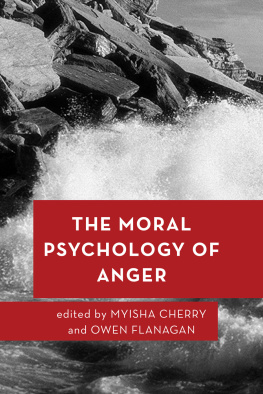

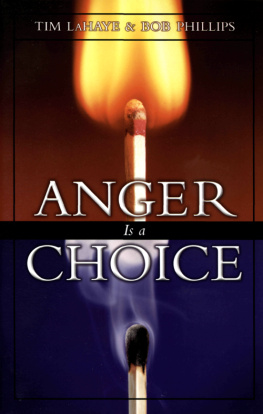
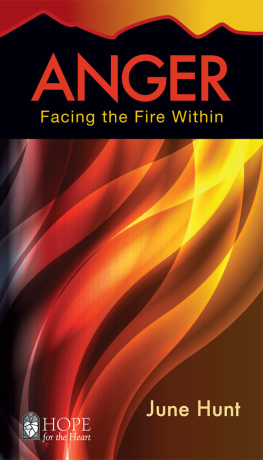
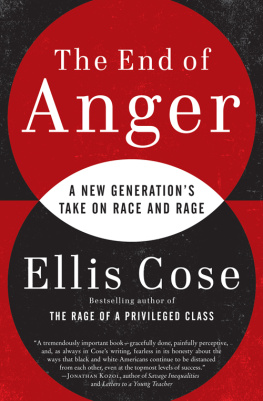


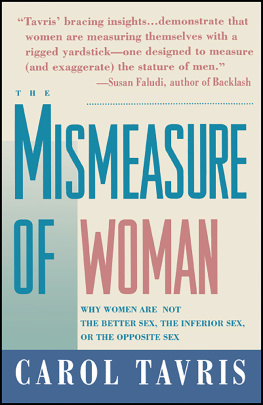
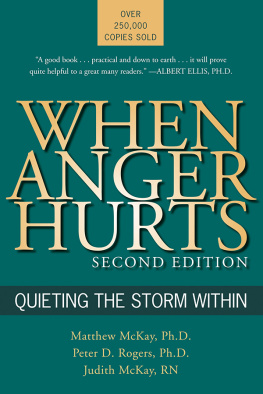
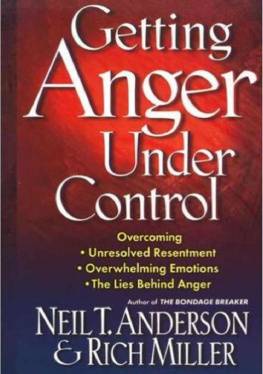

 The paper used in this publication meets the minimum requirements of American National Standard for Information SciencesPermanence of Paper for Printed Library Materials, ANSI/NISO Z39.481992.
The paper used in this publication meets the minimum requirements of American National Standard for Information SciencesPermanence of Paper for Printed Library Materials, ANSI/NISO Z39.481992.